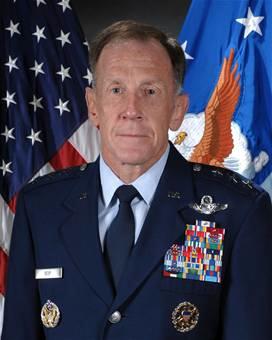
Release: ASP Board Member Lt Gen Norman Seip on Climate & Security
LANSING – On a news conference with Michigan reporters today, U.S. Air Force Lieutenant General (Ret.) Norman Seip highlighted the growing impacts of climate change on global security – and said climate impacts are already creating new challenges for U.S. forces here at home and around the world.
“The time is now to think about how we’ll adapt to extreme weather events, food shortages, and infrastructure challenges posed by climate change – both in terms of keeping our own military installations and service members safe, and because climate change will make the world more volatile,” said Gen. Seip. “While climate change alone is not likely to cause conflict, it will influence many of the underlying insecurities, like water availability, food production, migration, overpopulation, and economic insecurity, that make conflict more likely.”
According to a report by the Intergovernmental Panel on Climate Change, an estimated 500 million people around the world could see increased water resource stress due to climate change by 2020. The IPCC also estimates that by 2050, there will likely be an 8 percent average decline in yields for 8 major food crops across Africa and South Asia.
Additionally, Gen. Seip noted the nonpartisan American Security Project’s Global Defense Index on Climate Change has found that over 70% of countries around the world view climate change as a national security threat.
“Because the U.S. is a global power with interests around the world, addressing climate change is strategically important to our nation,” he said. “Put simply, countries that don’t have enough food to eat, or enough water to drink, or sufficient infrastructure face significant threats due to climate change. That’s why it’s in our best interest to lead the way and turn back climate change.”
Gen. Seip noted that many military installations, and every branch of the U.S. Armed Forces, have identified climate change adaptation as a key goal and taken steps to ensure they’re resilient to the impacts of climate change. Some are also taking steps to help turn back climate change.
In Michigan, for example, Fort Custer has incorporated clean, renewable power systems in the planning process for a potential missile defense system. And in recent years, the U.S. Navy, U.S. Air Force and allied nations have incorporated the use of clean-burning biofuels to power ships and planes.
“America is well-positioned to set an example for other nations – a strategy that will enhance our own security, and protect our service members and security interests into the future,” said Seip. “When it comes to climate change, our military knows the time is now to be prepared.”
(This telebriefing was coordinated in conjunction with Byrum & Fisk Communications)





